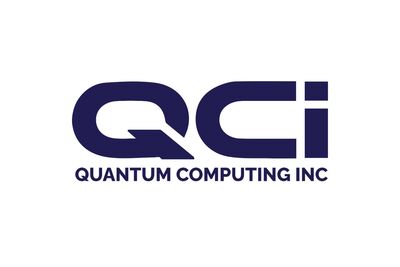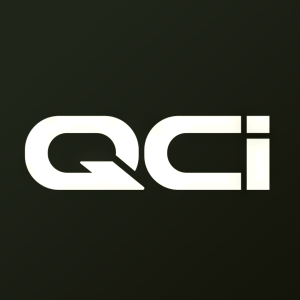Quantum Computing Inc. Secures Quantum Photonic Vibrometer Order with Delft University of Technology
Rhea-AI Summary
Quantum Computing Inc. (QUBT) has secured its second purchase order for LiDAR-based R&D equipment from Delft University of Technology in the Netherlands. The order is for a Quantum Photonic Vibrometer (QPV), designed for sensing applications in challenging environments.
The QPV operates at eye-safe wavelength and can characterize vibrational spectra with amplitude as low as 110 nanometers, using advanced photon-counting capabilities for contactless measurements. Assistant Professor Vahid Yaghoubi will lead the benchmarking of QPV against classical vibrometers.
This follows a previous order from Johns Hopkins University for QCi's Scanning LiDAR technology. The collaboration includes planned research publications and testing, with Associate Professor Nathan Eskue from TU Delft visiting QCi's headquarters for training and deployment.
Positive
- Secured second purchase order for quantum sensing technology
- Expanding international market presence with prestigious university client
- Technology demonstrates superior capabilities over traditional solutions
- Building academic partnerships for research and validation
Negative
- None.
News Market Reaction
On the day this news was published, QUBT declined 3.00%, reflecting a moderate negative market reaction.
Data tracked by StockTitan Argus on the day of publication.
This purchase order is for a Quantum Photonic Vibrometer (QPV) that can be used in sensing applications in challenging operational environments over a range of distances. Assistant Professor Vahid Yaghoubi played a crucial role in the technical evaluation of the Quantum Photonic Vibrometer (QPV) to ensure its capabilities align with the advanced research needs of TU Delft in Non-Destructive Testing (NDT) and Structural Health Monitoring (SHM).
"At TU Delft, we are always looking for cutting-edge technologies that push the boundaries of non-destructive testing. QCi's Quantum Photonic Vibrometer stood out due to its advanced photon-counting capabilities, high sensitivity, and ability to perform contactless measurements. Through our evaluation, we found its unique advantages over traditional LDVs to be highly compelling for our research applications. This purchase marks a significant step in developing next-generation NDT/SHM techniques by integrating quantum sensing technologies into our work," stated Assistant Professor Dr. Vahid Yaghoubi of TU Delft.
With this purchase, TU Delft, with the leadership of Professor Vahid Yaghoubi, will be benchmarking QPV against results from other classical vibrometers to verify and validate its performance and characteristics. Using leading edge photonic sensing techniques to achieve high speed, single-photon sensitivity, and noise rejection, QCi's QPV operates at an eye-safe wavelength and can accurately characterize vibrational spectra with an amplitude as low as 110 nanometers.
"With this order, we have an exciting opportunity to provide our American-made technology and services to such an esteemed, international technology university, underscoring market demand for more sensitive and effective vibrometer solutions that cannot be attained through traditional technology. Our quantum photonic technology exponentially suppresses background noise, creating accurate outcomes while supporting a variety of research applications," stated Dr. William McGann, Chief Executive Officer of QCi.
In March, Associate Professor Nathan Eskue, who specializes in robotics, manufacturing, project management, and rapid iteration prototyping for the Faculty of Aerospace Engineering at Delft University of Technology, joined QCi at its global headquarters in
This order comes less than a year after internationally renowned John Hopkins University purchased QCi's Scanning LiDAR, which uses cutting edge single-photon detection technology coupled with high precision time-tagging at a wavelength of 532nm, to test and evaluate underwater LiDAR technology. Dr. Jeeva Ramanathan, PhD, Quantum Tech Lead at QCi, who authored two patents for this advanced technology and has led its development at the Company added, "this latest order of our quantum photonic vibrometer illustrates the demand for our safe, precise, and non-destructive testing technology which can be used in an array of applications from determining the quality and integrity of materials to monitoring performance of materials during operational use."
About Quantum Computing Inc.
Quantum Computing Inc. (Nasdaq: QUBT) is an innovative, integrated photonics and quantum optics technology company that provides accessible and affordable quantum machines to the world today. QCi's products are designed to operate at room temperature and low power at an affordable cost. The Company's portfolio of core technologies and products offer unique capabilities in the areas of high-performance computing, artificial intelligence, and cybersecurity, as well as remote sensing applications.
About Assistant Professor Dr. Vahid Yaghoubi
Dr. Vahid Yaghoubi is an Assistant Professor at the Faculty of Aerospace Engineering at TU Delft. He is a leading expert in Artificial Intelligence, Uncertainty Quantification, and Applied Vibration. He is the head of the Q-VAIbe research group, where they leverage quantum physics and AI to develop the next generation of vibration-based monitoring techniques. His research aims to enhance the accuracy, sensitivity, reliability, and efficiency of monitoring systems to push the boundaries of non-destructive testing (NDT) and structural health monitoring (SHM) in complex engineering systems.
About Associate Professor Nathan Eskue
Dr. Nathan Eskue is an Associate Professor of Artificial Intelligence in Manufacturing at the Faculty of Aerospace Engineering at TU Delft, specializes in artificial intelligence, robotics, manufacturing, project/ business management, along with rapid iteration prototyping. Associate Professor Eskue has spoken at over fifty international conferences on technical topics such as artificial intelligence, aerospace, defense and quantum.
Company Contact:
Rosalyn Christian/John Nesbett
IMS Investor Relations
qci@imsinvestorrelations.com
Forward-Looking Statements
This press release contains forward-looking statements as defined within Section 27A of the Securities Act of 1933, as amended, and Section 21E of the Securities Exchange Act of 1934, as amended. These forward-looking statements and forecasts, generally identified by terms such as "may," "will," "expect," "believe," "anticipate," "estimate," "intends," "goal," "objective," "seek," "attempt," "aim to," or variations of these or similar words, involve risks and uncertainties because they relate to events and depend on circumstances that will occur in the future. Those statements include statements regarding the intent, belief, or current expectations of QCi and members of its management as well as the assumptions on which such statements are based. Prospective investors are cautioned that any such forward-looking statements are not guarantees of future performance and involve risks and uncertainties, including the comparative performance and market demand for quantum photonic vibrometers, and that actual results may differ materially from those contemplated by such forward-looking statements. Except as required by federal securities law, QCi undertakes no obligation to update or revise forward-looking statements to reflect changed conditions.
![]() View original content to download multimedia:https://www.prnewswire.com/news-releases/quantum-computing-inc-secures-quantum-photonic-vibrometer-order-with-delft-university-of-technology-302416913.html
View original content to download multimedia:https://www.prnewswire.com/news-releases/quantum-computing-inc-secures-quantum-photonic-vibrometer-order-with-delft-university-of-technology-302416913.html
SOURCE Quantum Computing Inc.








